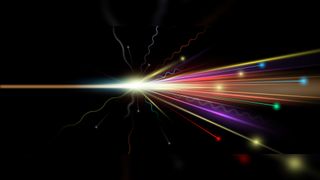Particle Physics
Latest about Particle Physics

Does physics say that free will doesn't exist?
By Paul Sutter published
At first glance, it seems like our understanding of physics forbids free will.
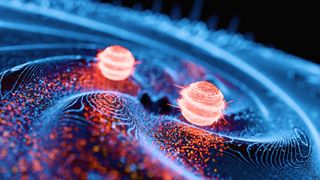
How the 'delayed choice quantum eraser' experiment got us to rethink reality
By Paul Sutter published
Does the universe notice that we're paying attention to a quantum experiment? The answer goes against everything we thought we knew.

Why is the universe made of matter? These 'ghost particle' experiments could help us find out
By Sharmila Kuthunur published
A new joint analysis from the NOvA and T2K experiments offers the most precise look yet at neutrino behavior, bringing scientists closer to understanding why the universe is made of matter.

Physicists and philosophers have long struggled to understand the nature of time: Here's why
By Daryl Janzen published
Intuitively, we know what time is, but try to explain it, and we end up tying our minds in knots.
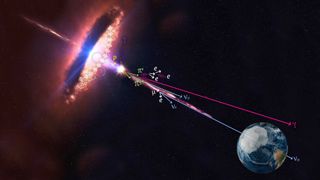
'Ghost particles' can zoom through you without a trace. Scientists are getting to the bottom of this cosmic mystery
By Robert Lea published
Scientists are searching for answers in the cosmic mystery of ghost particles known as neutrinos.

Virtual particles: How physicists' clever bookkeeping trick could underlie reality
By Dipangkar Dutta published
A physicist explains the idea of virtual particles and why they are important to study.
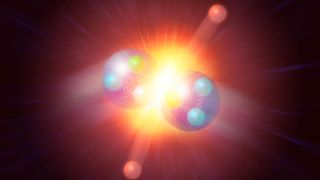
What is the weak nuclear force and why is it important?
By Paul Sutter published
The weak nuclear force doesn't play by the normal rules — and, in fact, it breaks one of the biggest rules of all.
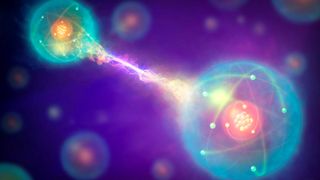
What is quantum entanglement? The physics of 'spooky action at a distance' explained
By Jesse Emspak, Daisy Dobrijevic last updated
Reference Quantum entanglement is one seriously long-distance relationship.
Breaking space news, the latest updates on rocket launches, skywatching events and more!
